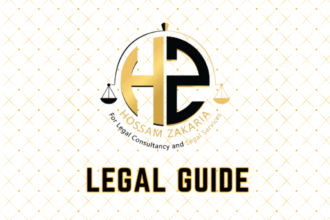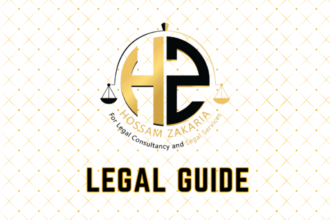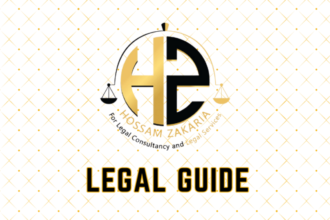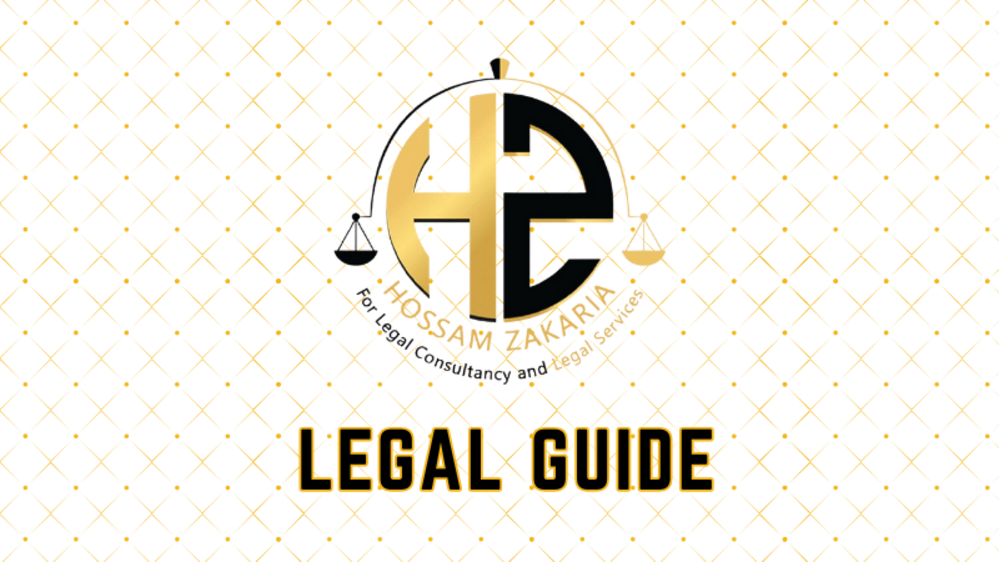Introduction
Arbitration has emerged as a cornerstone in the resolution of commercial disputes, offering a flexible and confidential alternative to litigation. With Qatar positioning itself as a regional hub for business and investment, understanding the intricacies of its arbitration framework is essential for companies operating within or engaging with Qatari entities. This article presents an expert analysis of Qatar’s leading arbitration institutions and draws practical parallels with the evolving legal landscape in the UAE, particularly in light of recent legislative reforms such as Federal Law No. 6 of 2018 (the UAE Arbitration Law) and ongoing updates through 2025.
For UAE-based organizations, managers, and legal professionals, insights into Qatar’s arbitration regime are crucial for cross-border compliance, risk mitigation, and dispute strategy. This guide unpacks the formal structure of arbitration in Qatar—from laws, institutions, and procedures, to recent reforms, comparative perspectives, and compliance best practices—delivering clarity and actionable guidance relevant to the Gulf’s dynamic legal environment.
Table of Contents
- Understanding Qatar’s Arbitration Framework
- Key Arbitration Institutions in Qatar
- Legal Framework: Qatar Arbitration Law and Recent Reforms
- Comparing Qatar and UAE Arbitration Laws
- Practical Insights for Compliance and Strategy
- Case Studies and Hypothetical Applications
- Risks, Non-Compliance, and Mitigation Strategies
- Conclusion and Forward-Looking Guidance
Understanding Qatar’s Arbitration Framework
Arbitration in the Context of Regional Commerce
As commercial transactions in the Gulf Cooperation Council (GCC) region become increasingly sophisticated and cross-border in nature, the selection of arbitration as a dispute resolution mechanism—rather than relying on local courts—is a strategic choice that reflects parties’ desire for neutrality, flexibility, and enforceability.
In Qatar, arbitration has been formalized through legislation and the establishment of several institutional arbitral centers. This approach mirrors broader regional movements, including those in the UAE, aimed at enhancing the efficiency and attractiveness of doing business, and at harmonizing local law with international best practices such as the UNCITRAL Model Law.
Strategic Significance for UAE Businesses
UAE-based legal and compliance professionals must remain agile amid these developments. Understanding Qatar’s arbitration environment is crucial for:
- Negotiating cross-border commercial contracts;
- Managing risk in joint ventures or investments in Qatar;
- Designing effective dispute resolution and compliance strategies leveraging regional arbitration mechanisms.
Key Arbitration Institutions in Qatar
1. Qatar International Court and Dispute Resolution Centre (QICDRC)
Located in the Qatar Financial Centre (QFC), the QICDRC offers a neutral forum for civil and commercial disputes. Its dispute resolution arm administers arbitral proceedings in accordance with international standards.
- Procedural Focus: International best practice, English-language proceedings, independence from local courts
- Implication: Especially relevant to multinational corporations and transactions involving QFC-registered entities.
2. Qatar International Centre for Conciliation and Arbitration (QICCA)
Established in 2006 under the Qatar Chamber of Commerce and Industry, QICCA is the principal national arbitration institution in Qatar. It handles both domestic and international cases across a spectrum of industries, with rules inspired by established global benchmarks.
- Key Features: Model clauses, fast-track procedures, code of conduct for arbitrators
- Benefits: Industry expertise, Arabic and English language proceedings, tailored support for commercial disputes
3. Other Regional Forums
Entities such as the Gulf Cooperation Council Commercial Arbitration Centre (GCCCAC) and ad hoc arbitration are also accessible for Qatari and GCC stakeholders, expanding the available toolkit for dispute resolution.
| Institution | Jurisdiction | Language(s) | Key Focus |
|---|---|---|---|
| QICDRC | QFC-related cases / International | English, Arabic | High-value, complex disputes |
| QICCA | Domestic & International | Arabic, English | Commercial contracts, construction |
| GCCCAC | GCC-wide | Arabic, English | Regional disputes, governmental contracts |
Legal Framework: Qatar Arbitration Law and Recent Reforms
Qatar Law No. 2 of 2017 (Qatar Arbitration Law)
The enactment of Law No. 2 of 2017 marked a transformative moment for arbitration in Qatar. Drawing extensively from the UNCITRAL Model Law, it establishes modern standards for the conduct, recognition, and enforcement of arbitral proceedings.
- Scope: Applicable to any arbitration conducted in Qatar, unless the parties agree otherwise. Covers both commercial and civil disputes within scope.
- Notable Provisions: Party autonomy, equal treatment, prohibition of ex parte communications, and robust interim measures.
- Enforcement: Qatari courts are empowered to recognize and enforce arbitral awards, with limited grounds for refusal.
This legal architecture aligns Qatar with global arbitration standards, enhancing predictability and trust for foreign investors.
Key Features of the Qatar Arbitration Law
- Arbitrator Appointment: Flexible, with court assistance if impasse arises
- Confidentiality: Explicit protection of the privacy of proceedings
- Challenging Awards: Grounds for annulment limited to specific procedural defects
- Interim Relief: The tribunal may grant interim measures; enforcement through local courts is permitted
- Institutional Adoption: Centres like QICCA update their rules to remain harmonized with the law
Regulatory Interface: QFC and Qatar Free Zones
Qatar’s various economic free zones, including the QFC, have adopted or mirrored the Qatar Arbitration Law in their own regulatory frameworks, furthering legal certainty for investors and partners operating in specialized business environments.
Comparing Qatar and UAE Arbitration Laws
Overview of the UAE Arbitration Law (Federal Law No. 6 of 2018)
The UAE Arbitration Law, modeled on the UNCITRAL framework and enacted by Federal Law No. 6 of 2018, has sharply modernized the Emirates’ approach to dispute resolution. Updates through 2025 have centered on clarifying enforcement powers and consolidating judicial oversight. Noteworthy recent developments include digital hearings and continuous professional development obligations for arbitrators, reflecting global legal trends.
Understanding the similarities and differences between Qatar and UAE legal regimes enables stakeholders to design arbitration clauses and compliance structures that minimize risk and maximize enforceability.
| Feature | Qatar Arbitration Law (No. 2 of 2017) | UAE Arbitration Law (No. 6 of 2018) |
|---|---|---|
| Model Law Compliance | Adopts UNCITRAL Model Law | Adopts UNCITRAL Model Law |
| Application Scope | All arbitrations in Qatar, unless agreed otherwise | All arbitrations in UAE, unless agreed otherwise |
| Language of Proceedings | Arabic or as agreed by parties | Arabic or as agreed by parties |
| Interim Measures | Tribunal and courts can grant/enforce | Tribunal and courts can grant/enforce |
| Judicial Review | Limited to severe procedural violations | Limited, but with specified procedures for annulment |
| Recent Reforms | Procedural and institutional updates | Digitalization, expanded tribunal powers, ongoing reforms |
| Institutional Ecosystem | QICCA, QICDRC, GCCCAC | DIFC-LCIA, DIAC, ADCCAC |
Practical Comparison: Risks and Opportunities
While the foundational structures are similar, practitioners must pay keen attention to local nuances, including:
- Differences in court practice regarding enforcement;
- Institutional capabilities and specializations;
- Legislative updates affecting arbitrator selection and party autonomy;
- Digitalization and innovative procedures in each jurisdiction.
Practical Insights for Compliance and Strategy
Drafting Arbitration Agreements
To maximize the efficacy and enforceability of arbitration clauses in Qatar, organizations should:
- Explicitly designate the applicable institutional rules and seat (e.g., QICCA Rules, Doha as the seat);
- Specify the language of proceedings and arbitrator qualifications;
- Incorporate provisions regarding interim relief and emergency arbitration if relevant;
- Assess compatibility with the New York Convention for cross-border enforcement (Qatar is a signatory, as is the UAE).
Engagement with Arbitration Institutions
Businesses are advised to:
- Leverage model clauses recommended by leading Qatari and regional arbitral institutions;
- Consult institutional guidance and legal experts for sector-specific requirements (e.g., construction, energy, joint ventures);
- Monitor updates and reforms periodically released by QICCA and QICDRC, strengthening compliance frameworks accordingly.
Table: Arbitration Agreement Checklist
| Item | Recommended Best Practice | Implications |
|---|---|---|
| Governing Law Specified | Clearly state Qatari law if intended | Reduces jurisdictional uncertainty |
| Institution Chosen | Name QICCA or relevant body | Smooth process, institutional support |
| Number and Qualifications of Arbitrators | 3, with industry experience if possible | Ensures expertise, robust awards |
| Language of Arbitration | Stipulate Arabic, English, or both | Prevents disputes over language choice |
| Seat and Venue | Determine city and legal seat | Governs procedural law, enforcement |
Case Studies and Hypothetical Applications
Example 1: Construction Dispute in Qatar
A UAE-based construction company is engaged in a major stadium project in Doha. Following contractual delays, a dispute arises regarding costs and liquidated damages. Because the parties had opted for QICCA arbitration and specified English as the language, the institution administered the proceedings expeditiously. The award was rendered and enforced through the Qatari courts without delay, benefiting from the streamlined judicial review procedures of the 2017 law.
Example 2: Cross-Border Joint Venture
A UAE investor forms a joint venture with a Qatari entity, opting for ad hoc arbitration under UNCITRAL rules with Doha as the seat. A shareholder dispute arises, with interim relief sought by both parties. Qatari courts recognize and enforce the arbitral tribunal’s interim orders, providing prompt, effective remedies in accordance with Article 17 of the Qatar Arbitration Law. The investor’s strategic choice of seat and familiarity with local practices ensures favorable outcomes and mitigates enforcement risk.
Visual Suggestion
- Process Flow Diagram: Arbitration procedure under QICCA—registration, constitution of the tribunal, hearings, award, enforcement.
- Case Outcome Chart: Illustrate enforcement rate and timeline for awards under new vs. old law.
Risks, Non-Compliance, and Mitigation Strategies
Risks of Non-Compliance
Failure to appreciate or act on the intricacies of Qatar’s legal framework can expose companies to:
- Invalidation of arbitration agreements due to ambiguous drafting;
- Procedural delays or annulment of awards over non-compliant conduct (e.g., improper arbitrator appointment, language issues);
- Ineffective enforcement and increased litigation risk;
- Increased reputational and financial exposure in cross-border transactions.
Penalty Comparison Table: Old vs. New Enforcement Risk
| Aspect | Before Law No. 2 of 2017 | After Law No. 2 of 2017 |
|---|---|---|
| Court Intervention | Frequent, broad intervention possible | Limited to specified annulment grounds |
| Enforcement Delay | Average 18-24 months | Average 6-9 months |
| Risk of Award Annulment | High due to procedural ambiguity | Reduced by codified procedures |
Mitigation Strategies for Organisations
- Regular review and updating of standard arbitration clauses for compliance with latest reforms;
- Continuous professional development and engagement with local legal counsel;
- Active monitoring of institutional rule changes and best-practice guidance;
- Pre-contractual risk assessment, including arbitration readiness and enforcement prospects by jurisdiction.
Conclusion and Forward-Looking Guidance
Qatar’s comprehensive arbitration framework and robust institutional architecture position it as a regional leader in commercial dispute resolution. For UAE-based organizations and cross-border investors, a nuanced understanding of Qatar’s Legal Law No. 2 of 2017 and the operational dynamics of QICCA and QICDRC is indispensable.
By proactively embedding updated arbitration provisions into contracts, maintaining regular dialogue with trusted legal advisors, and aligning dispute strategy with both Qatari and UAE legal updates (including the 2025 reforms in the Emirates), organizations can effectively mitigate risk, achieve efficient resolution of disputes, and reinforce cross-border business confidence.
Looking forward, arbitration in Qatar and the wider Gulf will become more agile as digitalization, further legislative harmonization, and professionalization of arbitral practice take hold. Best-practice clients will stay ahead by:
- Implementing compliance checklists for all cross-border agreements;
- Participating in regional legal forums and training sessions;
- Investing in legal technology and document management innovation as these become integral to dispute resolution processes.
For tailored advice on cross-border arbitration strategies, institution selection, and compliance with evolving UAE and Qatari law, consult with a qualified legal advisor familiar with both jurisdictions.



